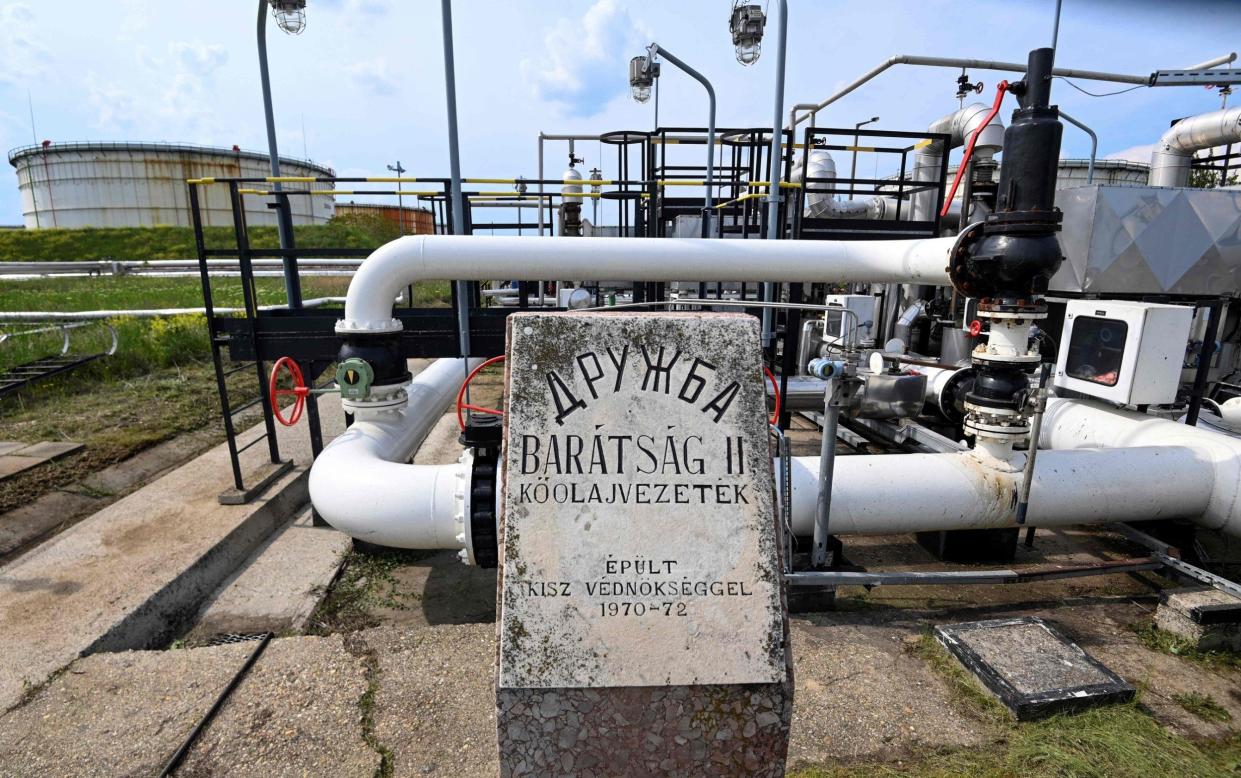Germany ‘deliberately watering down’ EU embargo on Russian oil

Germany was on Friday accused of deliberately watering down the EU’s planned embargo on Russian oil imports to benefit its own economy.
European sources told The Telegraph that Berlin wanted an exemption for deliveries via pipeline to be extended from Hungary, Slovakia and the Czech Republic to the entire bloc.
In a bid to unblock talks over the EU’s sixth package of sanctions against Moscow, German officials – who had previously backed a full ban – proposed only imposing the embargo on sea shipments of Russian oil.
It comes as EU countries scramble to agree a deal in time for leaders to endorse it at a summit early next week.
The move was originally negotiated in order to win over landlocked Hungary – which has so far blocked the EU’s latest round of sanctions – and give it more time to rearrange its supplies away from Russian oil.
But an EU diplomat said Germany hijacked the talks in order to secure wider concessions that would benefit its own economy.
“Initially it was about giving Viktor Orban space, but now Germany has seen it as an opportunity to help itself. Germany has pushed for this… to narrow the scope of the sanctions on Russia,” the diplomat said.
Hungary was seen as the main holdout against the EU’s attempts to end imports of Russian oil by the end of the year.
Budapest, which is reliant on pipeline deliveries from Russia, has blocked the sixth package of sanctions because it cannot easily get oil from elsewhere.
“It would be humiliating... to remove the oil embargo part of the package completely only to push through the other elements,” an EU official said.
“So the idea is to have an embargo on Russian oil and exempt the Russian Druzhba pipeline supplying Hungary only for some time, to give the European Commission and Hungary time to solve the problem.”
Because the majority of Russian oil to Europe is delivered by tankers, a ban on seaborne imports would still have a significant impact.
But failure to agree the oil embargo has held up the implementation of other elements of the sanctions package, including disconnecting Sberbank, Russia’s biggest bank, from the Swift messaging system and banning Russian broadcasters from the EU.
In his overnight address, Volodymyr Zelensky, the Ukrainian president, hit out at EU divisions over the latest sanctions package.
He said: “How many more weeks will the European Union try to agree on a sixth package? Of course I am grateful to those friends who are advocating new sanctions. But where do the people blocking this sixth package get their power from? Why are they allowed to hold such power?”
Olaf Scholz, the Germany chancellor, raised further questions about how Germany was prepared to show its support for Ukraine on Friday in a tweet that said: “Can violence be fought with violence? Can you only create peace without weapons?
“One thing is clear. We support Ukraine so that violence does not become the norm.”

 Yahoo News
Yahoo News 
